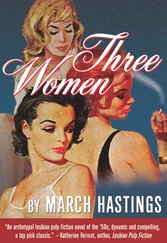During the period this book was written, he tripped up a flight of stairs three different times, incorporating three different flights of stairs, striking his chin on a step a total of one time, scuffing either his right or left wrist a total of one time, but feigning injury all three times, behaving as though the stumble were intentional and part of his natural boundless energy, to bounce off stairs and even slap his face against one of them and find it all part of the bustly navigation everybody signs up for when leaving the house for the adventure, the disaster, of the daytime trajectory. All three times, this man looked back after stumbling, to see who might have seen him slip, noting their faces and names, if available to his sight, promising himself to hate them as fully as he could at the soonest possible occasion (an occasion he tried to design by aiming his body in their direction), through either indifference or direct aggression, or some yet-to-be-devised strategy, which he was eager to invent and deploy at these witnesses for having seen him in pain, seen him stumble, watched him fail at being himself, as though it were even possible that anything involving motion could ever be said to succeed, or that a person, especially a man, could actually ever be anything, not to mention something so directly impossible as being himself.
He fell, sometimes on purpose, a total of nineteen times during the period this book was written, and he told a story once after intercourse, to the person who had just politely and patiently hosted him while he hyperventilated in their shared space until his error had been registered as a small dollop of fluid he extruded from his mistake zone, of falling as a child and suffering a terrible blow to his leg, a story he then later came to associate with having intercourse itself. Any kind of leg pain thereafter made him desire sex, though the fall and injury depicted by the story occurred more than ten years before he had ever had intercourse; he was only a child when he fell, but the story became a dirty story, an erotic one full of promise, and it came to depict what he called his first sexual encounter, a run-in with the hard earth that damaged his leg, a story with secret pornographic implications that he often imagined represented in a full-color pictorial with children and a cool, suburban palette. He also told a story, just before intercourse, of falling from his motorcycle, and thus a motorcycle crash was for him the ideal depiction of intercourse, which was one of his first justifications for introducing a helmet into the bedroom.
Most of his experiences of intercourse were free of speech, or, more specifically, free of consonants, since vowels indicate pleasure and consonants indicate pain and confusion, and he pursued an Ohio Lovemaking Stratagem that focused mainly on his own pleasure, a sensation that was found to dilate if certain all-vowel exclamations were launched; his lovemaking was once endorsed by a mayor, which was also once his sexual nickname, “the Mayor,” though it was admittedly a name he bestowed upon himself and never actually uttered aloud, except within the cavern of his terrible head. Yet because the people orbiting his mostly failed person proved entirely reticent to assign him nicknames or pet names or any kind of slogans or monikers or handles or endearments that veered even one letter from his actual name — even though in one sense all he ever wanted was to be someone with many nicknames; it seemed so exciting to be known variously, cutely, wrongly — he was obliged to take up the task alone and refer to himself quietly as “Champ,” “Rip,” “Daddy,” and “the Mayor.”
This author was called to perform bodily attention on six different women during the period this book was written. Of those six women, four of them unknowingly used a nearly similar vocabulary to describe the defects of the author, cited as: impatient, distracted, selfish, self-centered, dull. The other two women were similar in using nearly no vocabulary at all in describing the author, refraining almost entirely from the rhetoric of description or from any language that might have indicated any insight or interest in things involving either the author or otherwise, if indeed those are the only two choices of speech topics — the author or otherwise — since dichotomies such as that one still tend to present too complete a picture, and thus invite the worst kind of disappointment, that of knowing all of one’s options. In short, the other two women refrained from language or excessive gesture or anything thought to pass for communication before, during, or after intercourse (the only three possible descriptions of time), though it is admitted that the absence of all communicative actions becomes, in itself, a rather forceful and unambiguous communication itself, interpreted by the author as: Get off of me, Get away, Don’t touch me, Leave me alone, Stop, you’re hurting me. The author has thus come to interpret silence, even his own, as a directive to cease and desist, to apologize, to enter the opening moments of behavior known as regret and shame. The author concluded that silence was a green light for shame.
As to the doubts the author experienced while writing this book, they were characterized variously as suspicions, regrets, and certainties. The phrase “known failure” was used most often in the early evening, generally muttered “under his breath,” a technical impossibility, since at the time of this writing spoken language has yet to occur without breath, or under it or on top of it, despite the efforts of the female Silentists to deploy “words without wind.” (The author concluded that for breath to occur without a word attached was a violation of what breath was for — namely and exclusively as a transportation vehicle for language, a small car meant to compete in the space normally reserved for birds and wind; thus breathing itself was considered the first language, and if the author breathed at all, he should always, at the least, be sure to layer a word into the breath, so as not to be wasteful with the vehicles he dispatched into the air, often choosing the word “help,” for its simplicity and accuracy and full-time relevance.) He was openly admired for admitting his doubts, when confessions of weakness briefly passed for bravery, when certain persons in his life responded favorably to what the Ohio Pillow Talk Council calls “Fallibility Narratives”: pre- or postcoital speeches that prove the superiority of someone other than the speaker and instill respect and empathy in the listener, thus possibly creating the desire for sex, when humility and self-deprecation are seen as a covert kind of strength, best responded to by a submissive presentation of an orifice (SPO).
Last Wishes
When the time comes, and the day has failed, and this book is finished or tossed away in disgust or quietly put aside after being just casually scanned and dismissed; when this moment arrives, if I should exit this place heading north, please let no one care to follow me or even watch my last body as it falls from sight over the hill. I prefer not to be seen or known or discussed. I should be given a head start of a ten-count. My enemies should be blindfolded and spun in place. There should be no wolves. When my execution is planned by the people assigned to kill me, wolves should be left out of it. Let no grief circles form related to my demise.
At the end of this book, the characters should stand in a line and bow. All the places and names should fade to powder. My father should walk across the stage and make a short ceremony of blowing the powder out into the faces of the audience, raising a chalky dust that clouds the air and settles like flour onto the audience. There should be no applause. People should go home wearing the decay that the book enabled.
Читать дальше












